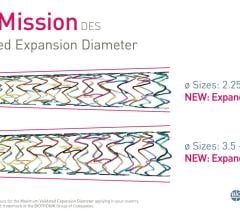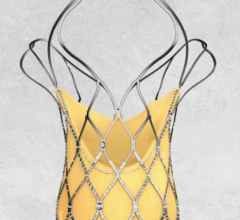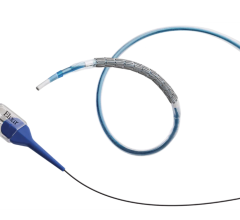Source: Wall Street Journal Online
July 20, 2007 - U.S. doctors implanted fewer coronary stents in June than any other month in the last year, according to a market researcher, indicating that medical studies critical of the devices appear to be having a sustained impact.
Stents are tiny scaffolds that prop open clogged arteries. Doctors flocked to them until late last year because they quickly relieve the chest pains and shortness of breath caused by a blocked artery. Last year, Americans spent more than $14 billion on stent procedures, with doctors implanting about 130,000 stents a month, according to various estimates.
But data from Goodroe Healthcare Solutions LLC, of Norcross, Ga., which surveys 75 U.S. hospitals with catheterization facilities for stenting, indicated that rate has significantly slowed. According to Goodroe, doctors in June performed fewer artery-inflating angioplasties - 11 percent below January levels. Fewer of those procedures involve a stent - 92 percent, down from 94 percent in January. And doctors in June used about 1.48 stents per procedure, down 4 percent from January. Those numbers indicate stent usage, in total, fell about 16 percent. (See more data from Goodroe.)
Goodroe didn't provide usage numbers in units of stents. In the past, its numbers have largely agreed with figures released by manufacturers and market researchers.
In late March, the New England Journal of Medicine published a study indicating that patients with mild chest pains could safely delay stenting in favor of treatment with drugs. Some of those patients may return for stenting later in the year if their pain persists.
Stent use has also been hurt by studies linking the most popular and expensive kind -- those coated with drugs to prevent reclogging -- with blood clots more than a year after implantation. In response, doctors have shifted back to older, bare-metal stents.
That has been good news for Abbott Laboratories, whose U.S. sales of bare-metal stents were up 179 percent in the last year. But the makers of drug-coated stents - Johnson & Johnson, whose U.S. stent sales fell 41 percent and Boston Scientific Corp., which reports its quarterly results today - have been hit hard. Boston Scientific and Abbott said they predicted an eventual recovery in the market. J&J declined to comment.
For more information: http://online.wsj.com/article/SB118490323731372724.html?mod=djemHL
Or write to Keith J. Winstein at [email protected]


 July 02, 2024
July 02, 2024 









